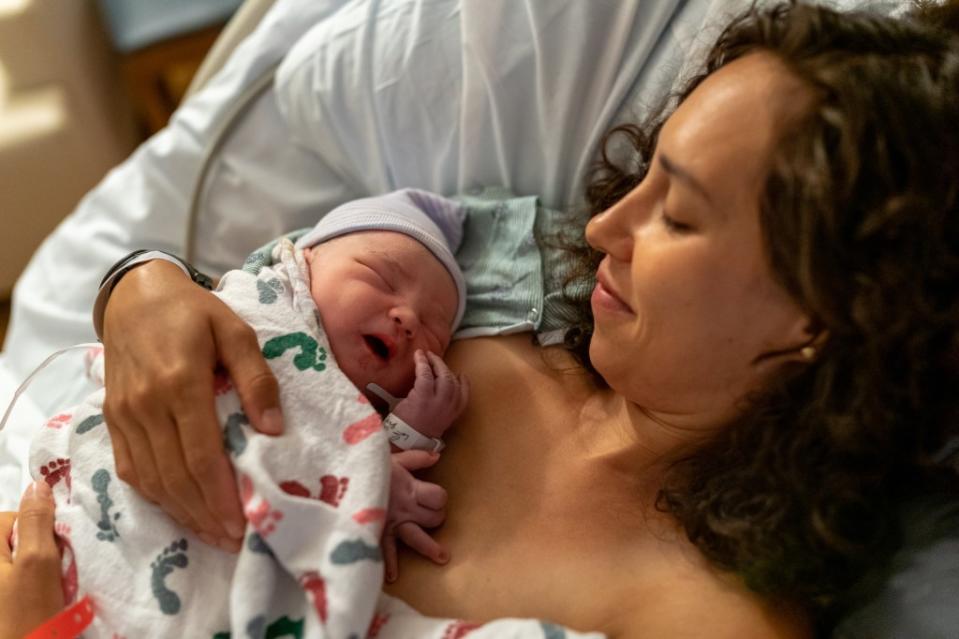Mother’s diet could determine a baby’s facial features in the womb: new study

You might be able to blame your mom’s strange pregnancy cravings for your looks.
The origins of facial features have long puzzled scientists, but new research suggests that a pregnant mother’s diet could actually influence certain features starting in the womb.
The study, published in the journal Nature Communications on Tuesday, linked a mother’s protein levels to gene activity, specifically mTORC1 genes, which influenced the “craniofacial shape of the embryos,” according to the authors.
They found that high-protein diets resulted in pronounced facial features — such as stronger jawlines and bigger noses — while a low-protein diet resulted in slimmer, pointier features.

In short, the mother’s diet could “fine tune” facial features — such as the shape and size of the nose or jaw — of their children.
For the study, the team of international researchers observed pregnant mice and zebrafish that were genetically manipulated and ate diets varying in nutrition level.
Past studies have linked mothers’ diets to health outcomes in children.
Vegan diets, for one, have been associated with lower birth weights.
One study, published earlier this year, found that boys born to obese mothers are more likely to be overweight at birth and are put at a heightened risk of metabolic conditions — such as fatty liver disease — later in life.

A different piece of research found that moms who ate ultra-processed food — which has been linked to an array of negative health consequences — could pass potentially harmful chemicals in junk food to their fetuses.


